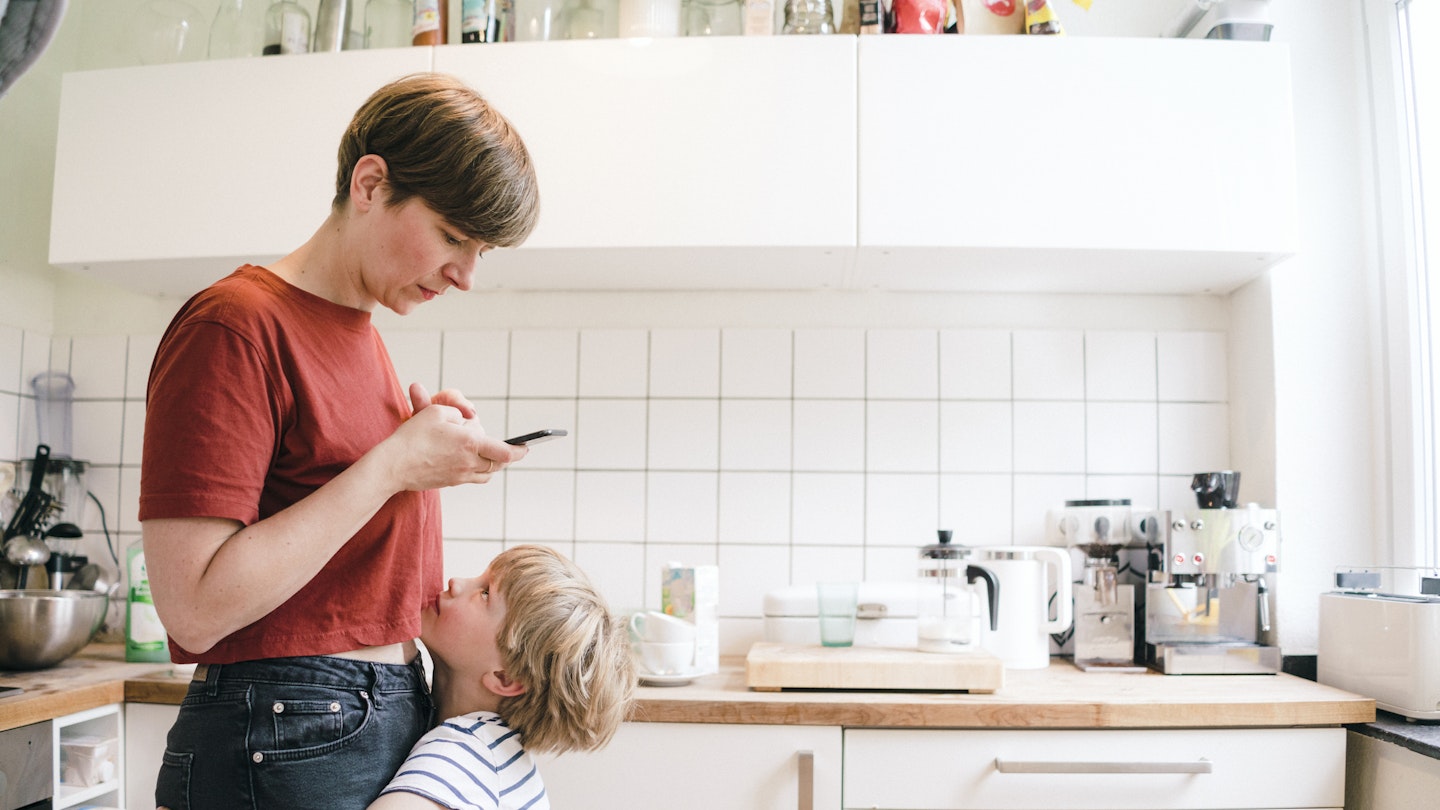The topic of children and phones has barely been out of the news in recent weeks. Earlier this month it was announced that headteachers will be given new powers to confiscate mobile phones, or even ban them altogether, in a bid to minimise disruption and improve behaviour in classrooms. Meanwhile, two mothers who set up a Whatsapp parenting community looking to minimise smartphone use in childrenwere amazed when 5000 people joined in the first 10 days.
I read this latest news story on my phone while making breakfast for my own children, who are 10 and 13, sharing and dissecting it with mum friends on our various WhatsApp groups. It was only later that I realised the irony. But parents like me – who worry constantly about their child’s phone use, while barely able to tear themselves away from their own phones – were called out this week.
The Children’s Commissioner for England, Dame Rachel de Souza, has said that parents need to ban their own phones from the dinner table and confront their phone habits before proposing bans for young people.
Addressing the Commons education select committee on the topic of children and screentime she said, ‘I’m not being judgemental. I’m a mother. I know how hard this is.’ Before adding, ‘You see parents with kids using their phones at dinner time. We can’t say, “I’m gonna ban you from having this” but then act as adults in an uncontrolled way, scrolling at night. We really do need our parents and the adults in this country to have this converstion about our own addictions.”
We really do. One study recently found that on average parents consume screen media for over nine hours per day. Researchers have also found that when parents have their phones at the table, they have 20% fewer conversations with their child.
Little of this is a surprise to me. Paradoxically, parents like me spend an awful lot of time worrying about their children’s screen time, while spending an awful lot of time staring at a phone themselves.
Tanya Goodin is a tech ethics expert and the author of The Teenage Guide to Digital Wellbeing, which is out in May, and she told me that she couldn’t agree more with Dame de Souza’s comments: ‘I was recently doing a talk in a school and I asked the children how many of them felt like they lived with an adult who frequently ignored them because of their phone. I was surprised that only 90% of them put their hands up,’ she says.
Goodin says that while parenting is tough enough without having another thing to feel guilty about, the number one thing that children talk to her about in schools is how often their parents are on their phones. Which is ironic, given she’s often invited in to teach young children about developing healthy phone habits.
‘Parents often have a huge double standard when it comes to tech use,’ she says. ‘It’s a case of, “do what I say, not what I do.” When I talk to parents, they’ll often use work as an excuse for being on their phones so much – and sometimes this is a valid reason – but we all know that what starts out as a quick check of a work email ends in a long Instagram scroll. It leaves children feeling like they’re being ignored.’
And then of course there’s the fact that children learn from, and copy, their parent’s behaviours. 'Countless studies show that if children grow up in a house with heavy drinkers, or smokers, they’re more likely to smoke and drink heavily themselves in adulthood,’ says Goodin. ‘Likewise, we know that children whose parents exercise regularly and eat well will be more likely to adopt those behaviours later on. So it’s not a big leap to predict that in years to come, studies will discover that children whose parents can’t disconnect from technology will be heavy users themselves.’
So, what’s the solution? Goodin also advises replying to work emails on your laptop, during working hours. And engaging in activities with your child that require two hands, like cooking or reading a book.
When I need to rein in my own phone use around my children, one simple but effective way is to have my phone in another room, or tucked into my handbag out of sight. And creating family rules that we all have to follow, like no phones when we first wake up and absolutely no phones at the table.
Or as Goodin puts it, ‘Be a digital role model, and use phones in a way you want your child to be using them when they’re older.’
